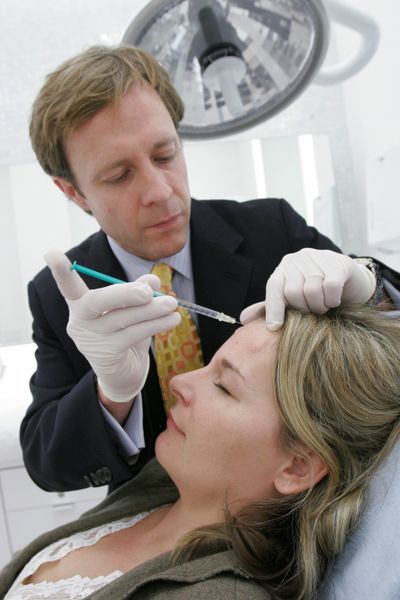Vanity tax could enhance funding for health care

WASHINGTON – They call it the “Botax.”
The White House and Senate Democrats have turned to a proposal to tax breast implants, tummy tucks, wrinkle-smoothing injections and other procedures as they search for ways to pay for costly health care overhaul plans.
Vanity was an easy target as lawmakers scraped for cash for the nearly $1 trillion plan to expand health care to millions of Americans who lack insurance. But it’s no joke to the drug makers and people who perform the cosmetic nips and tucks. And they’re fighting back.
Skin-smoothing Botox injections could be hard-hit. There were some 4.7 million last year and an average cost per visit of about $400, some including several injections.
“It is a random hit on an easy target that is only punitive and not corrective,” said Caroline Van Hove, a spokeswoman for Allergan Inc., the maker of Botox Cosmetic. “The bottom line is that taxing cosmetic procedures is unnecessarily punitive on people who have merely decided to enhance their appearance.”
At issue is a proposal in the 10-year, nearly $1 trillion health care draft unveiled by Senate Majority Leader Harry Reid, D-Nev., that would slap a 5 percent excise tax on elective cosmetic surgeries and procedures. The plan, projected to raise $6 billion, wouldn’t apply to surgery to fix a deformity or injury, but would include procedures such as face lifts, liposuction, cosmetic implants or teeth-whitening.
The plastic surgeons may have seemed like an appealing bunch to pick on given that they had already been skeptical of the Democrats’ overhaul proposal. But they say it will be a blow to countless American women – of every income level.
“The common misconception is that this is going to tax wealthy, suburban Republican women,” said Dr. Phil Haeck of Seattle, the president-elect of the American Society of Plastic Surgeons. In fact, he said, of the 86 percent of cosmetic surgery patients who are female, 60 percent of them have incomes between $30,000 and $90,000.
In addition, he said the tax would be especially hurtful in tough economic times that have prompted many newly jobless women to look for ways to make themselves more marketable to prospective employers. He said, “They’re competing with people 10 to 15 years younger than them and they want to look better.”
The emergence of the tax in the latest Senate health legislation shows what can happen when an industry or company that’s in Congress’ cross-hairs isn’t vigilant enough.
Dr. Daniel Russo, the Birmingham, Ala., plastic surgeon who heads the American Academy of Facial Plastic and Reconstructive Surgery, said his group first heard of the cosmetic procedure tax idea over the summer. But after being assured by several lawmakers and senior congressional aides that it was not being seriously considered, the group opted not to engage in a major lobbying battle against it, he said.
“On multiple fronts, we were assured that this was not something that any one of the senators or representatives wanted to pursue. This is something that we did not foresee,” Russo said in an interview.
Accounts vary on who first dreamed up the Botax. It came out of a late-July meeting on health care that included Sen. Max Baucus, D-Mont., the Finance Committee chairman, and Peter Orszag, Obama’s budget director, although neither man’s staff acknowledges having hatched the scheme.
In the end, Reid revived it simply because “we needed money to make the bill work,” his spokesman Jim Manley said.